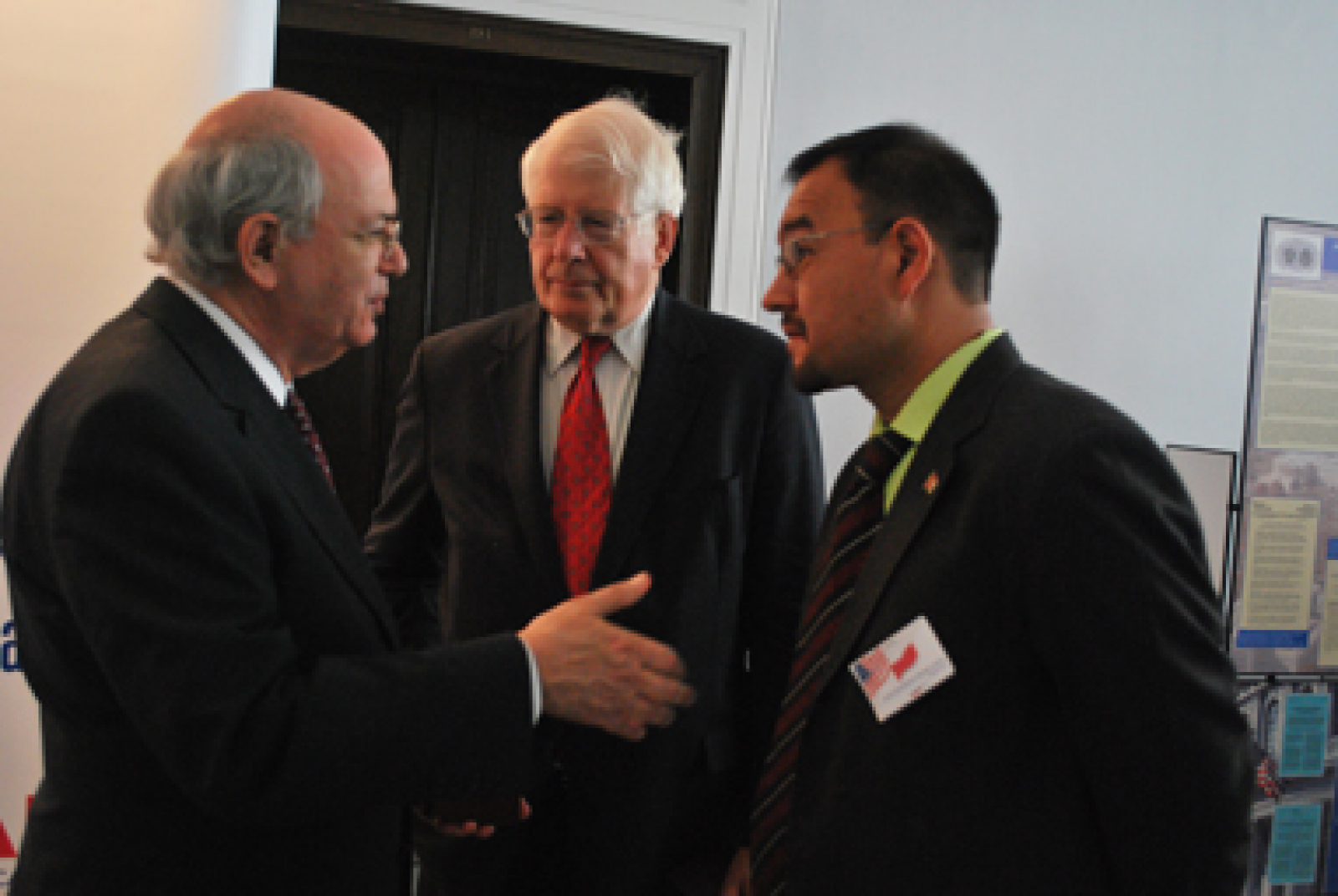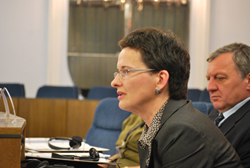
SHARE
"Democracy," said U.S. Rep. David Price, "cannot be imposed from without but must grow from within, organically and at its own pace."
Price was speaking at a unique week-long event in Warsaw, Poland, last month that exemplified that theme. Representatives of maturing and developing democracies gathered for two purposes. The first was to commemorate the 20th anniversary of the Frost-Solomon Task Force, which in 1990-96 provided assistance from the U.S. Congress to new parliaments in Central and Eastern Europe that were emerging from communist rule. The second was a Parliamentary Staff Institute to use the lessons learned through that experience to assist representatives of 11 parliaments from different parts of the world that are making their own transitions to democratic governance.
The particular focus of the institute was the development and strengthening of parliamentary research services. It was organized by the House Democracy Partnership (HDP), a successor organization to Frost-Solomon that is chaired by Price, in cooperation with NDI and the U.S. Agency for International Development.
"Where democratic governance has taken root," Price said, "where elected leaders are already working to reform and strengthen their institutions — then commissions such as ours can provide an added boost by sharing our own experiences, good and bad...because when we speak, we speak as peers, as fellow elected officials and professional staff members who are driven by many of the same motivations and ideals. We also have firsthand knowledge of the things that make our own legislature more effective, and can bring that knowledge to bear in targeted ways."
The commemoration events were hosted by the Senate and Sejm of Poland, one of the parliaments that benefitted from the Frost-Solomon program that is now helping other countries with democratic development. Also in attendance was former U.S. Rep. Martin Frost, D-TX, for whom the task force was named along with the late U.S. Rep. Gerald B. H. Solomon, R-NY. Additional participants were Dan Mulhollan, director of the Congressional Research Service (CRS), a group of veteran CRS employees who worked with the task force and representatives from 10 Frost-Solomon countries who all shared their expertise on developing research services.
Speakers underlined the importance of reliable, impartial, timely and accurate research for parliaments drafting legislation. And they shared tips on how to engage legislators and help them see the value of research, which was a concern of a number of representatives from the 11 developing parliaments who feel the importance of their work is not recognized.
"The key to democracy is effective legislation," which requires good information, said William Robinson, former deputy director of CRS. Paul Rundquist, formerly of CRS, emphasized the significance of visibility, flexibility, confidentiality and reliability as researchers prepare information for lawmakers and encourage them to see its value.
 Renata Blagniene speaks at the commemoration at the Polish Senate.
Renata Blagniene speaks at the commemoration at the Polish Senate.Renata Blagniene, head of the General Information Division of the Lithuanian parliament, who was one of the original Frost-Solomon participants, said the vision provided by CRS in those early days "forced us to work hard and to achieve standards." She and her team learned how to be active, be visible and gain political support for their research.
Frost-Solomon provided assistance to parliaments in 10 emerging democracies — Albania, Bulgaria, Czech Republic, Estonia, Hungary, Latvia, Lithuania, Poland, Romania and Slovakia. Its programs were based on the principle that successful democratic transitions in the former communist countries depended on the establishment of effective democratic legislatures.
Those programs, administered by CRS, provided more than 1,200 computers, printers, faxes and other office equipment; more than 9,300 books and other materials for parliamentary libraries; and training programs for more than 2,200 staff and members. "[A] lasting positive impact on the democratic work of parliaments can be demonstrated in all of the countries," according to the task force's final report, published in 1998.
HDP comprises a bipartisan group of 20 members of the U.S. House who work to promote and support the development of democratic governments around the world. It is co-chaired by Price and U.S. Rep. David Drier, R-CA. Attending the staff institute were representatives from HDP partner legislatures in Afghanistan, Georgia, Haiti, Indonesia, Kenya, Kosovo, Liberia, Macedonia, Mongolia, Pakistan and Timor-Leste.
"While our work has evolved considerably since the first Frost-Solomon delegations 20 years ago," Price said, "one constant remains at its core: the importance of a legislative research service to an independent legislature. For policymaking is often a battle of ideas, and ideas must be supported by facts."
Related:
- Rep. Price's full remarks»
- NDI supports House Democracy Partnership in sharing good practice»
- Representatives of nine legislatures take part in Washington program to improve parliamentary research and administration»
- In Macedonia, parliamentarians forego partisanship in public hearing simulation»
Pictured above: Former U.S. Rep. Martin Frost (left) and Rep. David Price (center) speak to Ibrahim Samadi, a participant in the parliamentary research service institute from Afghanistan.
Published on July 7, 2010


